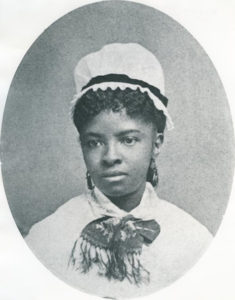
Mary Eliza Mahoney
Mary Mahoney was born on this date in 1845. She was among the first Black female nurses to hold that position in the United States.
She was the oldest of three children born in the Dorchester section of Boston. At eighteen, she began working as a cook and cleaning woman at the New England Hospital for Women and Children. Mahoney was always interested in becoming a nurse, and in 1878, at 33, she was accepted as a student nurse in the hospital. It was a rigorous program, and on August 1, 1879, Mahoney was one of only four to graduate out of forty-two entries.
Mahoney's reputation for proficiency grew after registration with the Nurses' Directory at the Massachusetts Medical Library and plenty of positive referrals from clients and patients. Her alma mater took note of her success and began admitting other Negro women despite the racism at nursing schools in America. By 1899, her school had produced and graduated five other Black nurses.
Black nurses were not given the same opportunities as White nurses, so Mahoney became involved in the National Association of Colored Graduate Nurses (NACGN) in 1908. Never married, she treated her patients like family, often cooking for those in her care. In 1911, Mahoney moved to New York for a year, heading the Howard Orphan Asylum for Black children in Kings Park, Long Island, until 1912.
In her post-retirement years, Mary E. Mahoney supported the women's suffrage movement and, in 1921, became one of the first women in Boston to vote. She died on January 4, 1926.
Black Women in America An Historical Encyclopedia
Volumes 1 and 2, edited by Darlene Clark Hine
Copyright 1993, Carlson Publishing Inc., Brooklyn, New York
ISBN 0-926019-61-9